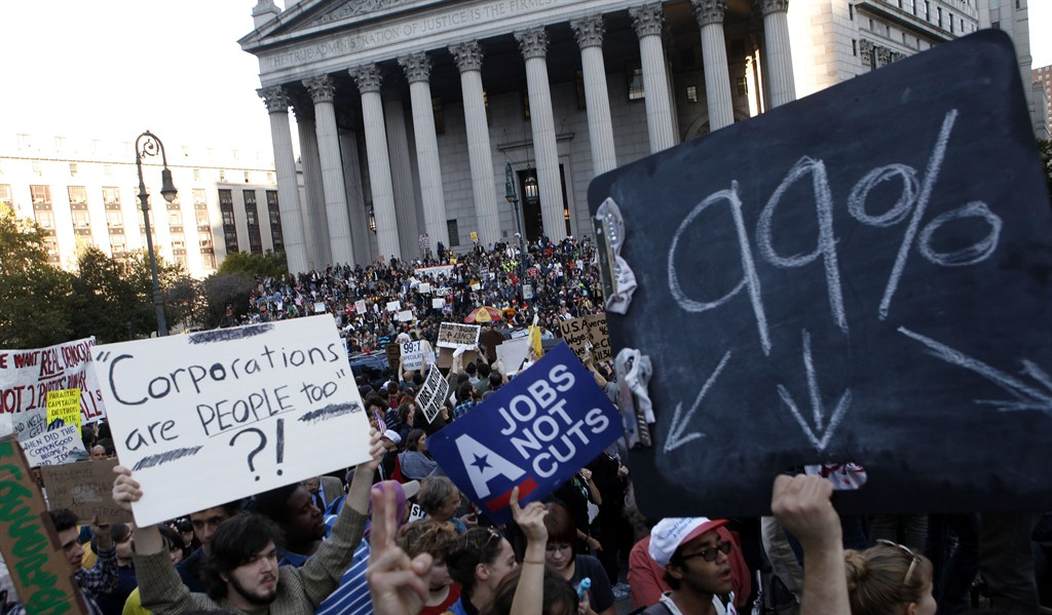Aptly nicknamed the Motor City, Detroit was once a driving force behind American economic growth. In the first half of the 20th Century, the city had a thriving economy and burgeoning population, largely a function of its powerful automobile manufacturing industry. But after decades of corruption and fiscal irresponsibility, the city is today a shadow of its former self. So much so that the nickname Motor City has become a misnomer. Today, Detroit is predominantly characterized by its high crime rate and distinction of being the largest American city to go bankrupt.
With numerous municipalities teetering on the verge of bankruptcy, some are asking which U.S. city will be the next Detroit, but they need not look too far.
Cincinnati, Ohio, located a mere 250 miles away from Detroit, is presently facing many of the same fiscal issues that brought Detroit to its knees. Like the Motor City, Cincinnati is saddled with woefully underfunded pension funds. The problem has become so severe that Moody’s Investor Services downgraded Cincinnati’s credit rating in July, revising its outlook to negative.
As of early August, the city had $862 million in unfunded liabilities. Cincinnati’s pension plan system is only 61 percent funded; in comparison, actuaries estimate that Detroit’s pensions are underfunded by 40 percent to 50 percent. Seeing as it was Detroit’s underfunded pensions that played a central role in triggering its bankruptcy, one could see how Cincinnati is threatened with a similar fate unless elected leaders can institute meaningful reforms. In fact, Ohio Auditor Dave Yost recently said, “[u]nfunded pension is the monster that is going to eat Cincinnati,” labeling it “[p]ension-zilla.”
To its credit, Cincinnati has been somewhat more receptive to change than Detroit. The city council has already passed legislation to limit the growth of retirees’ pensions, which previously increased by three percent every year, regardless of the economic outlook. And in 2011, Cincinnati firefighters accepted a wage freeze. Yet, these reforms are only a Band-Aid on a hemorrhaging wound.
Recommended
In order to save the city from insolvency, the Cincinnati city council must make changes to retiree payouts and employee contributions. In order for American cities like Cincinnati to reach fiscal balance and remain competitive, Big Labor must be willing to compromise; otherwise, similar to Detroit, growing liabilities will drown municipalities. Unfortunately, the idea of cooperation does not sit well with many union bosses. Big Labor has waged an aggressive campaign to stymie any serious fiscal reforms in various American cities, distorting the truth whenever necessary to suit their needs and bankrolling the campaign of politicians who will be most likely to tell them what they want to hear.
In the 2008 and 2012 elections, for instance, labor bosses spent nearly one billion dollars helping to elect and re-elect President Obama and likeminded individuals to federal office. Instead of using collected worker dues to help make pensions plan whole, union heads decided it was more important to play the role of kingmaker. Nowhere was this more true than Ohio where tens of millions of dues were spent less than a year ago on the presidential campaign.
Big Labor cares about protecting its own interests, never mind the fact that cities such as Cincinnati are in danger of fiscal insolvency. Rather than making much-needed and collective sacrifices, union bosses have decided to try and collect as many funds as possible before great American municipalities go belly up. This is exactly the kind of conduct which led Detroit to declare bankruptcy. With labor membership rates continuing to plummet and labor bosses unable to convince more workers to voluntarily join unions, their tactics are becoming increasingly desperate and self-centered. Unfortunately, it is taxpayers – read workers – who suffer and pay the price for Big Labor’s intransigence coupled with the fiscal mismanagement of American cities, such as Cincinnati.

























Join the conversation as a VIP Member